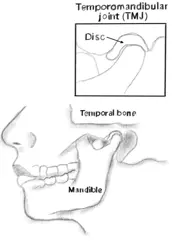Temporomandibular Joint Dysfunction (TMD), also known as TMJ, is a condition that results in pain and discomfort in the jaw. It is often characterized by difficulty in opening and closing the mouth, clicking noises during jaw movement, and in some cases, limited ability to chew without discomfort. This disorder can arise from jaw misalignment, tooth wear, orthodontic issues, or congenital abnormalities within the joint. Despite the discomfort it causes, treatment, often involving an oral surgeon, can typically alleviate the symptoms.

One common question is whether TMJ can cause tinnitus, a condition characterized by the perception of noise or ringing in the ears. The answer, in many cases, is yes. The TMJ, which is located near the ear, shares some nerve supply with it. Consequently, inflammation or dysfunction of the TMJ can impact the ear structure and hearing perception, potentially leading to tinnitus. For some individuals, tinnitus may be the only symptom of TMJ they experience.
Experiencing jaw clicking and tinnitus on the same side could be indicative of TMJ causing the tinnitus. The TMJ is located near the ear, and complications arising from this joint, such as inflammation or dysfunction, can impact nearby auditory structures, potentially leading to tinnitus.
Research indicates that individuals with TMJ disorders are three times more likely to experience tinnitus, and those suffering from TMJ-related headaches are six times more likely to develop tinnitus. Fortunately, tinnitus caused by TMJ can be treated, often subsiding with proper treatment of the underlying TMJ disorder.
It’s important to note that if you’re experiencing tinnitus in one ear, it may not necessarily be due to TMJ. Unilateral tinnitus can also be caused by other issues such as ear infections, certain medications, or more rarely, tumors like acoustic neuromas.
The relationship between TMJ and pulsatile tinnitus is less clear. However, given the complex network of muscles, nerves, and blood vessels in the area of the TMJ and ear, severe TMJ disorders could potentially affect blood flow and contribute to pulsatile tinnitus.
When discussing their experiences with TMJ and tinnitus, patients have shared various sentiments. One patient described their experience as a ‘double whammy.’ They first started noticing a sharp pain in their jaw, accompanied by a clicking noise when eating or yawning. Just as they were getting used to this, a constant ringing sound in their ears began, which seemed to intensify with the jaw pain.
Another patient mentioned that their ordeal started with what felt like ‘an unending concert in their ears.’ It was only when they felt discomfort in their jaw during a meal that they connected the dots and realized the two might be related.
One patient mentioned that their TMJ treatments felt like ‘a miracle.’ They had been suffering from tinnitus for months, feeling hopeless until their dentist suggested that it might be related to their TMJ. Following treatment for TMJ, they noticed a significant reduction in the ringing sound in their ears, which brought them immense relief.
Physical therapy, medication, and in severe cases, surgery, are common treatment approaches for tinnitus caused by TMJ. Physical therapy can include exercises to stretch and strengthen jaw muscles, massage, heat or ice therapy, and ultrasound treatments. Medications such as nonsteroidal anti-inflammatory drugs (NSAIDs) and muscle relaxants are used to manage joint pain, swelling, and muscle spasms. In cases where pain and stress are significant, antidepressants or anti-anxiety medications may be prescribed. When these treatments prove ineffective, surgical intervention, though a last resort, may be considered to correct the underlying TMJ disorder and alleviate the associated tinnitus symptoms.
Taking NSAIDs and observing any subsequent changes in your symptoms may provide some insight into whether your TMJ and tinnitus are linked. If your tinnitus symptoms decrease when your TMJ pain and inflammation are reduced with NSAIDs, this might suggest a relationship between the two.
For a more detailed exploration of tinnitus, its causes, symptoms, and treatment options, you can check out the following article: Ringing in Your Ears: Understanding Tinnitus, Its Causes, Symptoms, and Treatment Options
Disclaimer
The information provided in this article is for general informational purposes only. The content presented on this website should be considered solely as opinions and personal experiences. Read more
